#albert einstein theory of relativity
Text
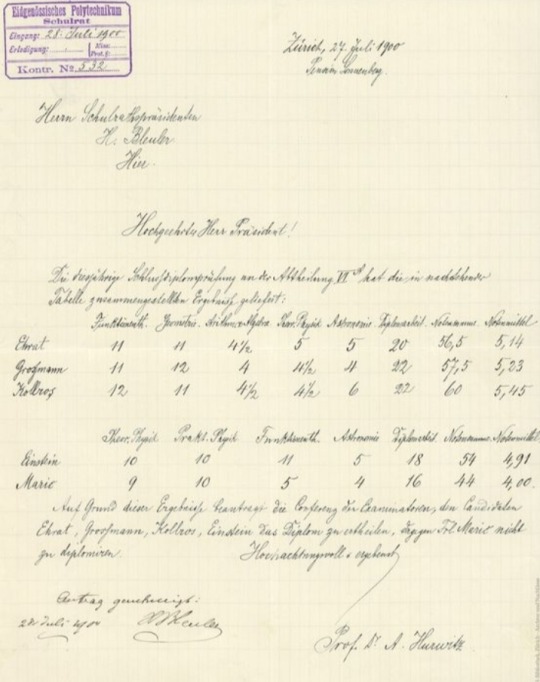
The Nobel Prize shares a copy of Albert Einstein's diploma, which he received 123 years ago after finishing his studies at the Polytechnic Institute in Zurich, Switzerland.
📷: Nobel Prize / Facebook
—
Albert Einstein (14 March 1879 – 18 April 1955)
#Albert Einstein#Nobel Prize#e=mc²#Theory of Relativity#Quantum Mechanics#physics#science#Einstein#Polytechnic Institute#photoelectric effect#Nobel Prize for Physics#space#astronomy#universe#time#gravity#motion#light
102 notes
·
View notes
Text
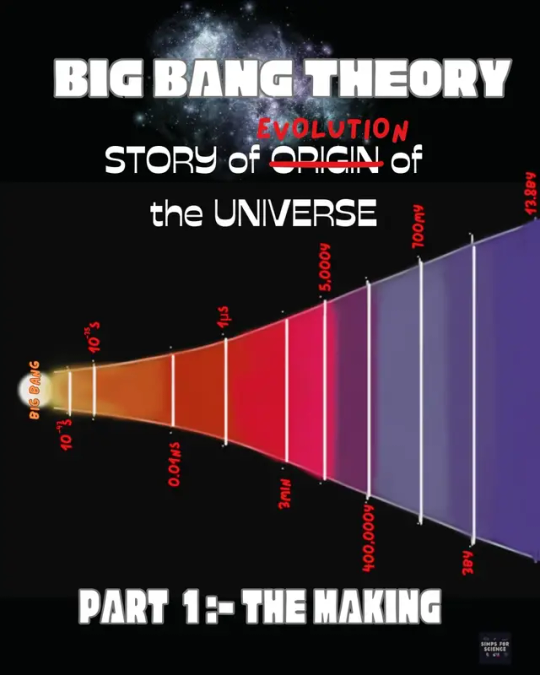
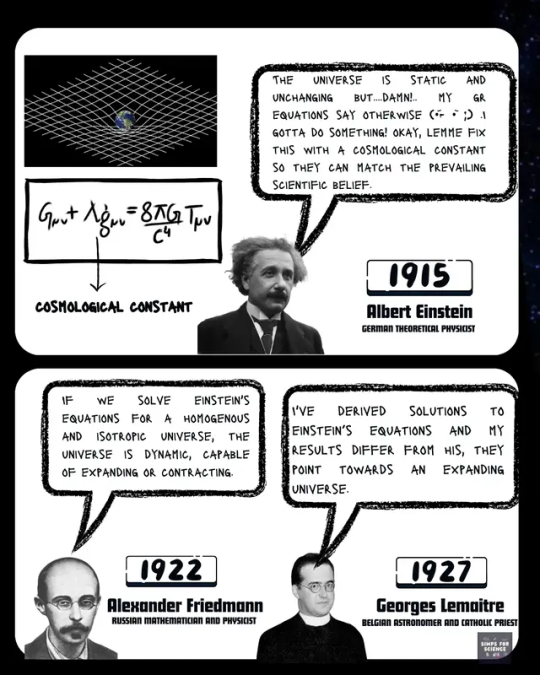
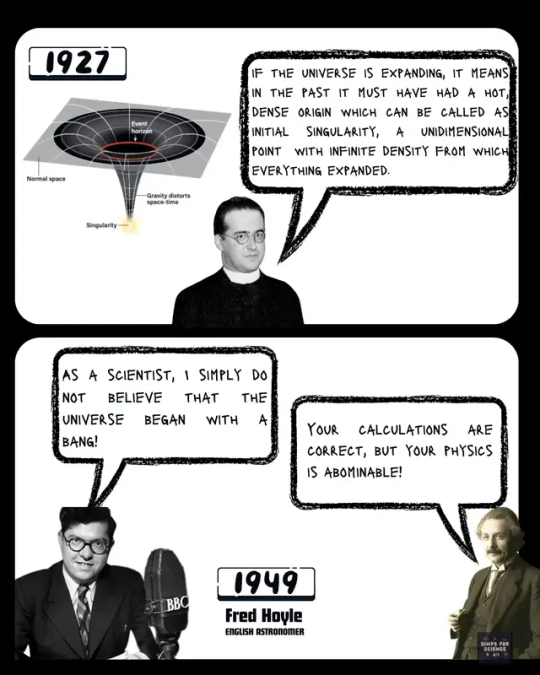
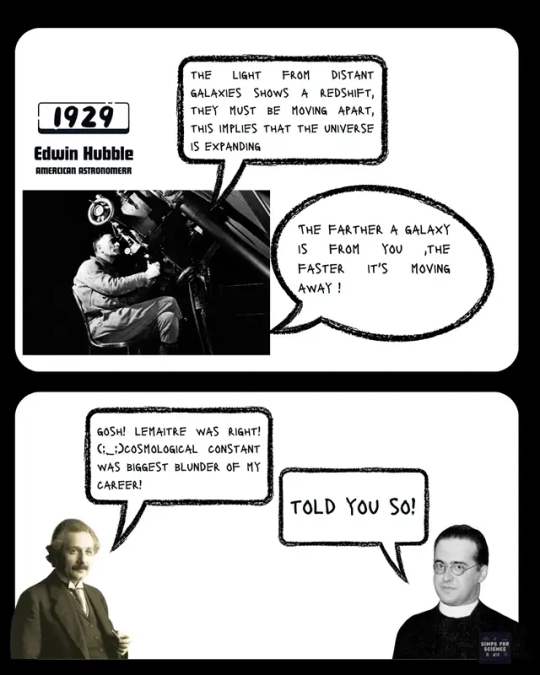
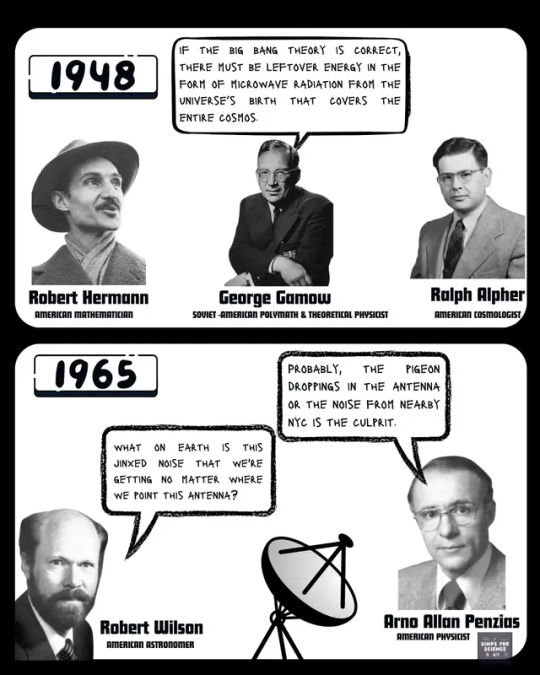
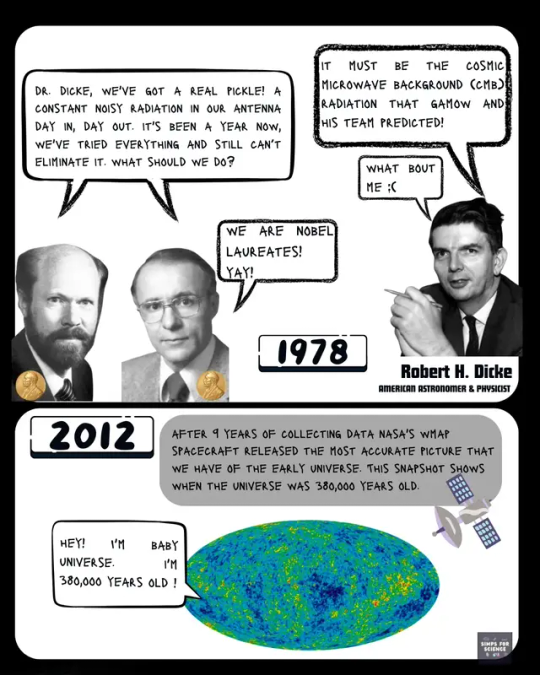
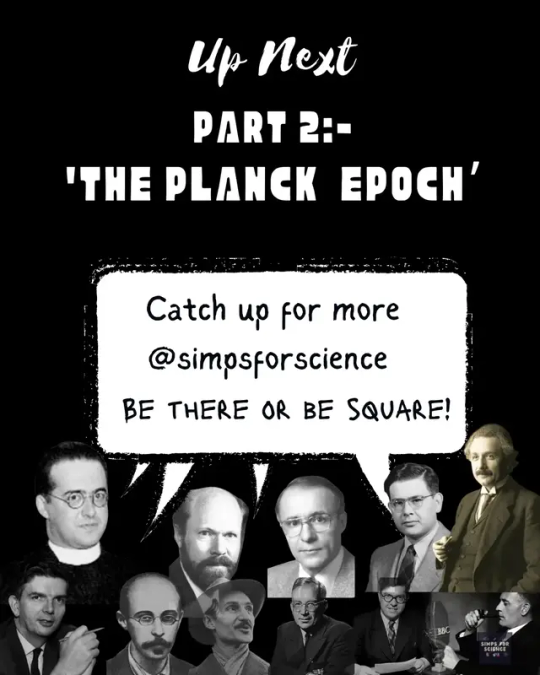
From the tiniest atoms⚛️ to the vastness of galaxies☄️, ever stopped and wondered what sparked it all?🤔 Well, we did dig a bit deep into it and here we are to walk you through what we found. 🔭Join us in this monthly series to unravel the greatest enigmas of our shared universe. Let's explore the cosmos together!🚀
#astrophysics#science#space#cosmos#nasa#albert einstein#big bang theory#galaxy#physics#astronomy#cosmology#general relativity#quantum physics#hubble#science facts#science memes#phd#comic art#study blog#education#explore
35 notes
·
View notes
Text
bro theory of relativity gave me an existential crisis
#studyblr#phyblr#physics#theory of relativity#what happens after the universe ends#nobody knows#what is nothing#just blank#kinda scary huh#phy#relativity#albert einstein#physics studyblr#study#physics study#science#stem#stemblr
28 notes
·
View notes
Text

Albert Einstein
7 notes
·
View notes
Text

#magic#cernunnos#magick#shamanism#420#music#shaman#nature#witchcraft#albert einstein#theory of relativity#equation#happiness#science#physics#marijuana#thc#grass#hashish#stoner#cannabis
10 notes
·
View notes
Text
Albert Einstein
Born in 1879, the man that we all know as one of the most brilliant minds to have ever lived was once considered a major failure. In fact, Einstein didn’t speak until he was 4 years old. Yes, four-years old. In 1895, at the age of 16, he failed to pass the examination for entrance into the Swiss Federal Polytechnic school located in Zurich.
And while he did graduate from university, he struggled and nearly dropped out, doing very poorly during the course of his studies there. In fact, he was in such dire straits that at the time of his father’s death, he considered his son to be a major failure, which left young Einstein completely heartbroken.
After graduating, he wandered, unsure of what to do with his life. After some time, he ended up taking a job as an insurance salesman, going door to door in an attempt to sell insurance. Eventually, 2 years later, he took a job at the Patent Office as an assistant examiner, evaluating patent applications for a variety of devices.
Of course, this is the same individual who brought us the theory of relativity, with groundbreaking work done in physics and mathematics, and helped us to reach deeper understandings about how the universe works, developing several fundamentals core laws governing physics, won the Nobel Prize in 1921 and created the beginnings of quantum theory.
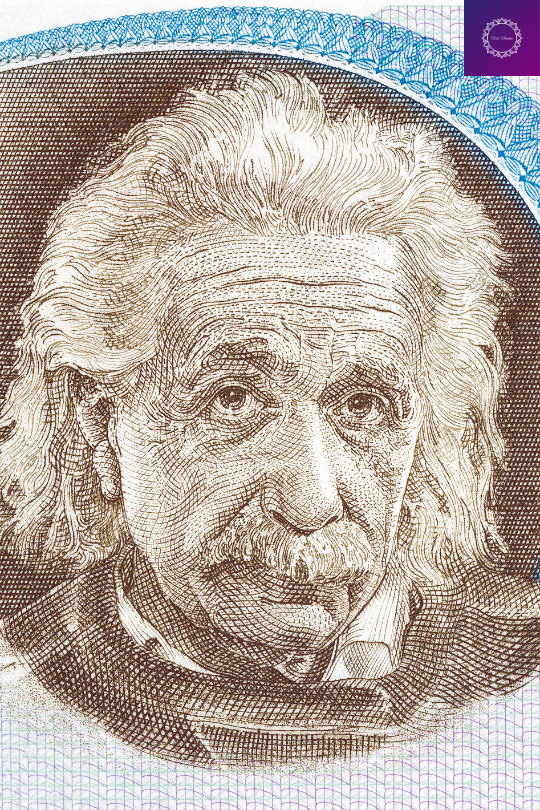
4 notes
·
View notes
Text

GENERAL RELATIVITY OF THE ME.
The pending me
Through gravity
Approaches
Singularity.
Like on an strong invisible line
We're lost in-between space and time
We're orbiting the future me
The one that we will use to be.
And that is the whole theory
about the relativity
Between the present pending me
And the final ending me.
#fredwardfall#characterdesign#sketchbook#illustration#darkart#digitaldrawing#digitalart#space#time#singularity#astrophysics#albert einstein#relativity#gravity#theory
2 notes
·
View notes
Text
Continuing with Ineffable Husbands films, I’ve watched “Einstein and Eddington”. Now I have to clarify – firstly, I haven’t heard Eddington’s name anywhere aside from Star Trek (there was a ship named after him); secondly, I’m bad at physics – my physics teacher at school was a poet and some of his verses I remember better than relativity theory, I roughly understand it – and the experiment was pretty much explained here, I’ve revised the formulas for the exam this year (yes, I study for a programmer, but we still have physics even though we don’t need it at all) but I was very happy to forget them. What I wanted to say – if there are any historical or physical mistakes – I was unable to spot them and I’m not going to judge the movie based on the accuracy. The film shows Eddington in Cambridge and Einstein in Berlin during World War II. They both overcome all the political and economic obstacles in the name of science and truth. They haven’t even corresponded directly – they’ve published articles and responded. They’ve also shown some moments of personal life about Eddington’s friend, (Spoilers!) who died in the War and about Einstein’s wife (who tried to understand his work) and lover (who in her turn, didn’t understand physics at all and their common point was music). Of course, there’s a happy ending, because we all know that the theory of relativity and the “new gravity” was proven. P.S. That’s Andy Serkis? I didn’t recognize him! (He played Einstein.) The moustache changed him so much. P.P.S. David Tenant’s smile is just perfect.











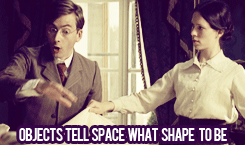
#movie#einstein and eddington#albert einstein#arthur eddington#andy serkis#david tennant#jim broadbent#relativity#relativity theory
20 notes
·
View notes
Text
Sometimes bitches just want someone to talk about physics, you know? Theory of relativity and stuff.
It's me, I'm bitches and I not even reasonably good at physics, but still do.
2 notes
·
View notes
Text
Carlo Rovellis books are magnificent. Read his chapter on general relativity and then before continuing that book am listening to “The Order of Time” and the way he writes physics in such a poetic manner is beautiful and I am obsessed.
#carlo rovelli#the order of time#seven brief lessons in physics#albert einstein#general theory of relativity#the most beautiful theory#physics#physicist
4 notes
·
View notes
Link
#albert einstein#einstein#time travel#relativity#theory of relativity#warmhole#time dialation#thegyaaneeknowledge#newsprovider#newsprovidernetwork#science#technology#fact#do you know it
2 notes
·
View notes
Photo
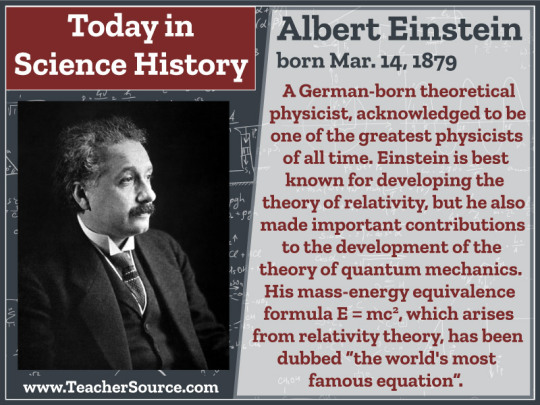
Albert Einstein was born on March 14, 1879. A german-born theoretical physicist, acknowledged to be one of the greatest physicists of all time. Einstein is best known for developing the theory of relativity, but he also made important contributions to the development of the theory of quantum mechanics. His mass-energy equivalence formula E=mc2, which arises from relativity theory, has been dubbed "the world's most famous equation".
#albert einstein#e=mc2#physics#theoretical physics#relativity#general relativity#mass-energy equivalence#relativity theory#science#science birthdays#science history#on this day#on this day in science history
3 notes
·
View notes
Text
The Earth goes around the sun, so we Earthlings have the illusion that the sun exerts a force of attraction, called gravity, on the Earth. But to someone outside the solar system, they would not see a force at all; they would observe that the space around the Earth has curved, so that empty space is pushing the Earth so that it goes in a circle around the sun.
Einstein had the brilliant observation that gravitational attraction was actually an illusion. Objects moved not because they are pulled by gravity or the centrifugal force but because they are pushed by the curvature of space around it. That’s worth repeating: gravity does not pull; space pushes.
The God Equation: The Quest for a Theory of Everything by Michio Kaku
#spacetime#theory of relativity#albert einstein#gravity#The God Equation#Michio Kaku#カク ミチオ#string theory#physics#science#grand unified theory#books#quote#reading#bookblr#bibliophile#bookworm#currently reading#booklr#atypicalreads#theoretical physics
9 notes
·
View notes
Video
Albert Einstein's Art by Alejandro Miniaci2022
this is the most recent exact amazing illustration of the great genius albert einstein made with vs materials even the video and photo are an approximate approximation to what is the real impression of seeing it in person,
but it is a way of sharing and valuing it, by showing the audience a work of self-improvement in realistic personal detail.
made by alejandro miniaci illustration (all rights reserved miniaci2022)
----------------------------
Esta es la mas reciente exacta ilustracion asombrosa del gran genio albert einstein realizada con vs materiales aun el video y la foto son un aproximado acercamiento a lo que es la impresion real de verla en persona,
pero es una manera de compartir y valorarlo , al mostrar a la audiencia un trabajo de autosuperacion a detalle realista personal.
realizada por alejandro miniaci ilustracion (todos los derechos reservados miniaci2022)
______________________#dibujoeinstein #einstein’s art
AUDIO PIECE V CLIP EINSTEIN: ANTIDOTO 03 BY ALEJANDRO MINIACI MORE RECENT ALBUM IN ALL PLATFORMS OF MUSIC
#alberteinstein
#einstein#albert einstein#albert einstein dibujo#art#alejandrominiaci#princeton university#einstein draw#philipe halsman#ilustration#einstein ilustration#einstein pinterest#relativity#theory of relativity#e=mc²
2 notes
·
View notes
Text
Albert Einstein: Il Genio della Fisica che ha Rivoluzionato il Mondo
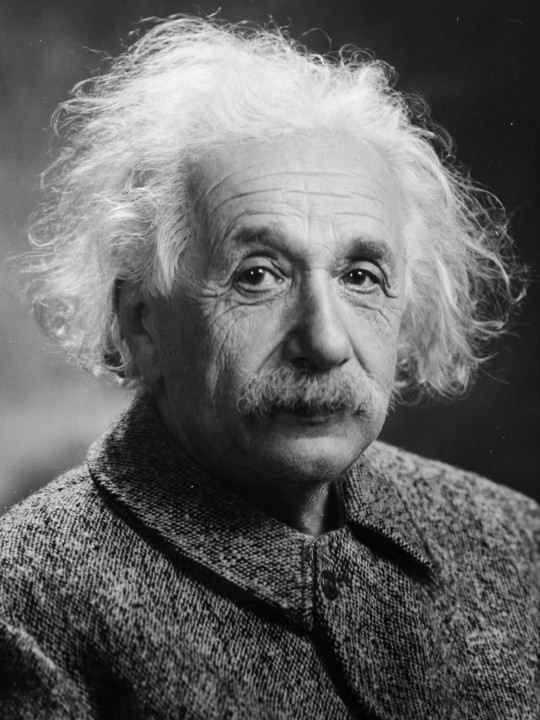
Albert Einstein, uno dei più grandi scienziati della storia, ha lasciato un'impronta indelebile nel mondo della fisica e oltre: ha sviluppato teorie rivoluzionarie che hanno trasformato la nostra comprensione dello spazio, del tempo e della natura stessa.
La sua teoria della relatività, pubblicata nel 1905, ha gettato le basi per una nuova visione dell'universo, introducendo concetti come la relatività ristretta e la relatività generale. Queste teorie hanno dimostrato che lo spazio e il tempo non sono entità fisse, ma piuttosto dinamiche e interconnesse.
Uno dei risultati più sorprendenti della teoria della relatività è stata la famosa equazione \( E=mc^2 \), che ha svelato la relazione profonda tra massa ed energia, aprendo la strada alla comprensione delle reazioni nucleari e all'energia atomica.
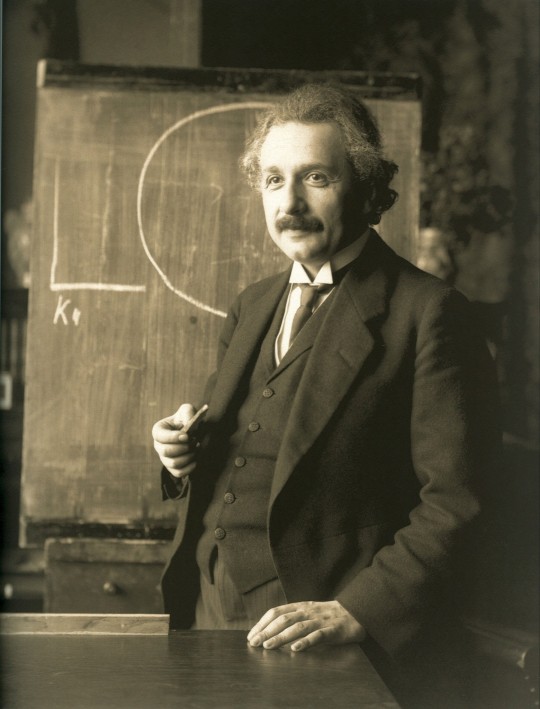
Nel 1921, ha ricevuto il Premio Nobel per la Fisica per la sua spiegazione dell'effetto fotoelettrico, un fenomeno cruciale nella comprensione della natura ondulatoria della luce e nell'avanzamento della meccanica quantistica.
Oltre ai suoi contributi scientifici, Einstein è stato anche un fervente sostenitore della pace, della giustizia sociale e dei diritti umani. Ha parlato contro l'antisemitismo, il razzismo e la guerra, impegnandosi per promuovere la cooperazione internazionale e la comprensione tra i popoli.
Anche dopo la sua morte nel 1955, l'eredità di Einstein continua a influenzare la scienza, la cultura e la società. Le sue idee hanno ispirato intere generazioni di scienziati e hanno cambiato per sempre il nostro modo di vedere il mondo.
Albert Einstein rimane una figura iconica, il cui lavoro e la cui visione continuano a plasmare il mondo in cui viviamo. Il suo genio e la sua umanità ci ricordano l'importanza della curiosità, della creatività e della compassione nel perseguire la conoscenza e il progresso.
#influencer#blog#rebel#world#love#blogger#beautiful#fashion#best#feed#phisics#albert Einstein#professor#relativity#theory#instalove#instadaily#instatoday#today#Anniversary
0 notes
Text

Why you age slower on a plane?
According to the theory of relativity, the faster you travel, the slower time will pass for you. While the effect may be small, it is still significant. For instance, if you were to embark on a transatlantic flight from London to New York, the time displayed on your watch would be slightly behind that of a watch left on the ground by a ten-millionth of a second. This seemingly minuscule difference in timekeeping actually translates to you aging a fraction more slowly than if you had chosen to stay at home.
The Hafele-Keating experiment, conducted in 1971 by physicists Joseph C. Hafele and Richard E. Keating, stands as a seminal test of Einstein's theories of relativity. At the heart of the experiment were highly precise cesium atomic clocks, which served as the tools to investigate the effects of time dilation predicted by special and general relativity.
Cesium atomic clocks operate based on the vibrations of cesium atoms, which resonate at a specific frequency. The stability of these vibrations allows for incredibly accurate timekeeping. In the context of the experiment, the researchers strategically placed atomic clocks on commercial airliners that circumnavigated the globe in opposing directions.
Einstein's theory of special relativity, formulated in 1905, predicts that time is not absolute but rather relative to the observer's motion. Specifically, time dilation occurs when an object is in motion relative to an observer at rest. Clocks in motion appear to run more slowly, an effect proportional to the object's velocity. This concept was a fundamental departure from classical Newtonian physics, challenging the notion of a universal and absolute time.
The Hafele-Keating experiment tested these principles by sending atomic clocks on flights. Clocks traveling eastward, in the direction of the Earth's rotation, were expected to experience less elapsed time than stationary clocks due to their high speed. Conversely, clocks flying westward against the Earth's rotation were anticipated to register more elapsed time.
The results of the experiment were in line with the predictions of special relativity. Clocks that flew eastward recorded less time compared to their stationary counterparts, while clocks flying westward recorded more time. This experimental validation added significant weight to the revolutionary ideas introduced by Einstein in the early 20th century and demonstrated the practical implications of relativity on our understanding of time. The success of the Hafele-Keating experiment underscored the profound impact of Einstein's theories on our comprehension of space, time, and the nature of the universe.
#physics#experiments#cesium atomic clock#atomic clock#albert einstein#science#special relativity#theory of special relativity#time
0 notes